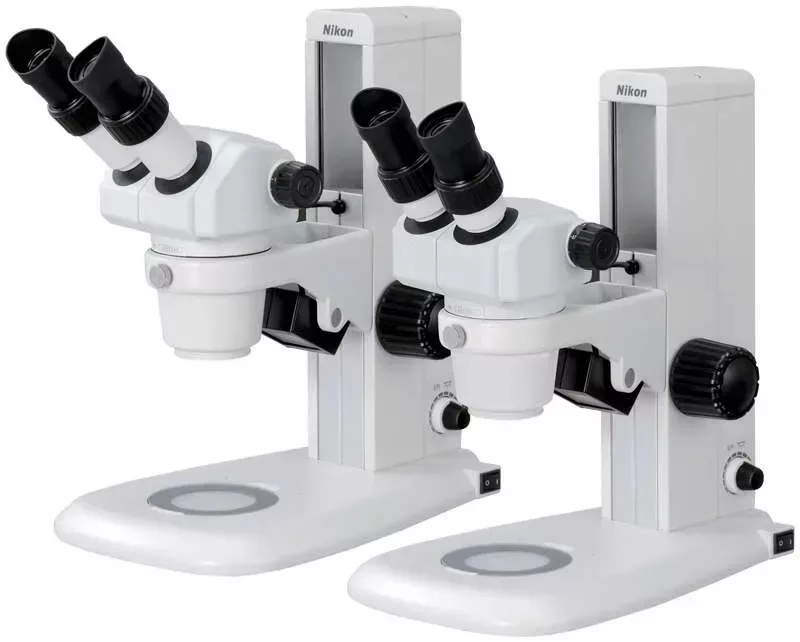Stereo Microscope Nikon SMZ460: Explore the Micro World with Unmatched Clarity
A Stereo Microscope Nikon SMZ460 is an essential tool that unlocks the hidden world of microscopic details, empowering scientists, researchers, educators, and hobbyists alike. From uncovering biological structures to analyzing materials, microscopes play a pivotal role in various fields, ensuring precision and discovery. If you’re looking for cutting-edge solutions to magnify and study the unseen, our range of microscopes offers unparalleled quality and innovation.
What is a Microscope?
A microscope is a scientific instrument designed to magnify objects that are too small to be seen with the naked eye. By combining lenses and illumination, it provides detailed visuals of specimens, enabling analysis at a cellular, molecular, or material level.
Microscopes are used across diverse applications, including biology, medicine, metallurgy, and education. Whether you’re conducting laboratory research or inspiring young minds in a classroom, the right microscope ensures clarity and precision.
Types of Microscopes
- Compound Microscopes: Ideal for biology and laboratory work, offering high magnification for small specimens.
- Stereo Microscopes: Perfect for dissection or inspecting larger specimens with 3D imaging.
- Digital Microscopes: Integrated with cameras for capturing and sharing images and videos.
- Fluorescent Microscopes: Used in advanced biological research to visualize fluorescently labeled samples.
- Metallurgical Microscopes: Designed for studying metals and industrial materials.
- Polarizing Microscopes: Perfect for geological and material sciences.
- Electron Microscopes: High-resolution imaging for nanostructures and subcellular studies.
Key Features of Modern Microscopes
- High Magnification: View intricate details at cellular and subcellular levels.
- LED Illumination: Energy-efficient and long-lasting lighting for optimal clarity.
- Ergonomic Design: Comfortable operation for extended periods.
- Advanced Optics: Achromatic and infinity-corrected lenses for distortion-free imaging.
- Digital Integration: USB connectivity and software for enhanced documentation and analysis.
- Durable Construction: Built to withstand rigorous use in laboratories and fieldwork.
Applications of Microscopes
- Biological Research: Explore cell structures, microorganisms, and tissues.
- Medical Diagnostics: Detect diseases and study histological samples.
- Material Science: Examine metals, crystals, and polymers for quality control.
- Education: Inspire students in classrooms and labs with hands-on learning.
- Environmental Studies: Analyze soil, water, and biological samples for ecological research.
- Forensics: Aid in criminal investigations by examining trace evidence.
- Pharmaceuticals: Ensure quality control in drug manufacturing processes.
Benefits of Using a Microscope
- Enhanced Observation: See details invisible to the naked eye.
- Improved Accuracy: Perform precise analysis in research and diagnostics.
- Versatility: Suitable for a wide range of fields and industries.
- Innovation in Learning: Encourage curiosity and critical thinking in students.
- Cost-Effective Solutions: Long-lasting instruments ensure value for money.
How to Choose the Right Microscope
- Application: Identify the specific purpose, such as biological, industrial, or educational use.
- Magnification Range: Ensure it meets your requirements for clarity and detail.
- Optics Quality: Look for anti-reflective and distortion-free lenses.
- Durability: Opt for robust models for prolonged use.
- Digital Features: Choose microscopes with integrated cameras for documentation.
- Budget: Balance cost with functionality for the best value.
Why Choose Our Microscopes?
Our microscopes are crafted to meet the highest standards of precision and durability. With a wide range of options tailored for beginners and professionals, we ensure you have the perfect tool for your needs. Whether you require advanced research capabilities or user-friendly models for education, we offer solutions that combine innovation with affordability.
Maintenance Tips for Your Microscope
- Keep Lenses Clean: Use lens paper to remove dust and smudges.
- Store Properly: Cover your microscope to protect it from dirt and damage.
- Regular Calibration: Ensure accurate magnification and focus.
- Handle with Care: Avoid sudden movements or dropping to prevent misalignment.
- Replace Bulbs: Switch out worn-out light sources for consistent illumination.
Industries That Rely on Microscopes
- Healthcare: For pathology, microbiology, and diagnostics.
- Education: Enhancing learning in schools, colleges, and universities.
- Environmental Science: Monitoring ecosystems and conducting research.
- Material Science: Ensuring product quality and innovation.
- Forensics: Assisting in criminal investigations and evidence analysis.
Explore the micro-world like never before with our high-performance microscopes. Contact us today to find the perfect solution for your research, educational, or industrial needs. Experience clarity, precision, and reliability with our expertly crafted instruments.





Reviews
There are no reviews yet.